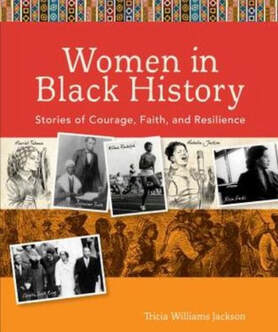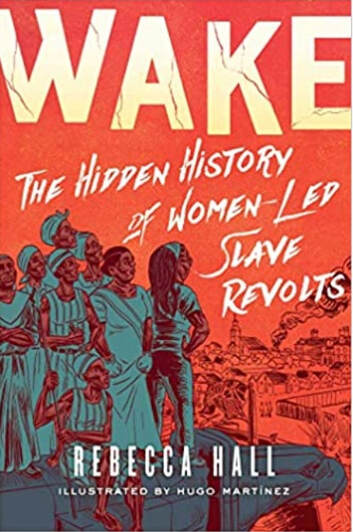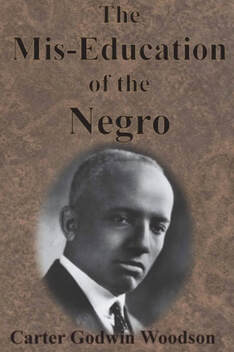Black History is American History, is World History.If you were to ask a student what history is, they would most likely answer that it is the record of past events. In fact, many students seem to think that history is just about the winners. History, however, has much more to it than just a record of past events. It’s also about people – all kinds of people: kings and queens, heroes and villains, explorers and nomads, conquerors and saints…and quite often in our American history textbooks that's where the story ends. Once the labels/titles have been established as good guy vs. back guy, all else is presumably justified. A more realistic view of history would fill in the gaps in the narrative and detail the reasons behind certain actions and stimulate conversation and debate around student opinions and reactions to it. We have probably all heard someone say “Why should I learn history? What does it matter?” There are plenty of reasons why learning Black history matters but for the purpose of this blog post there is one resounding reason: Black History IS American History, and is in fact World History! Black History is about Africans in America…and so much more! Black History encompasses contributions by Native Americans as well as Hispanic Americans – no ethnic group or race has influenced our country more than African Americans. Black History includes contributions to civilization. The impact of our ancestors can be seen in almost every area of our lives: art (painting & sculpting), music (classical & jazz), sports (baseball & football)…black inventors have made significant contributions in technology such as with traffic lights or the cell phone! We cannot properly understand American culture today without understanding black history and culture! Teaching Black History is Mandatory in some school districtsBlack History is American history. Until the late 1960s, Black history was ignored in most school districts across the country. Thankfully, it has gained a foothold in most schools and is now included in many classrooms. With that said, there are still plenty of reasons for teachers to include more about African American history in their curriculum all year long and not just during February. This article will highlight a few of those reasons here. In some school districts around the country, including Black History as part of the curriculum has become mandatory within the last five years or so. In fact, St Louis Public Schools in Missouri have been requiring students to take African American Studies classes since 2005. And while this class isn’t required at all schools across St Louis county—the one district where it is required has made big strides towards education reform through this initiative by providing a rich curriculum that includes guest speakers and field trips at its high schools. In IL, Senator Kimberly Lightford, the first African American female Senate Majority Leader, has championed education in Illinois. She passionately stated during the "Full Black Caucus education and workforce development press conference" available on Youtube in 2020 to "examine the state's education system through the lens of systemic racism to identify the best ways to bring an end to inequities curriculums and practices that often do more to cause racial division than support the needs of our most vulnerable children and youth and young adults. Throughout the eight hearings that we have scheduled we will discuss what a child's educational journey looks like in Illinois from early childhood education to joining the workforce or attending a university or community college." Too often, white students are allowed to stay in their own bubbles of whiteness and never consider that the history they are learning is not just a story about their ancestors or the people who look like them. Books that address the feelings of superiority and entitlement is "White Fragility." Our country has such a rich, diverse history that is able to inspire our youth and give them pride. American history books often leave out or gloss over important parts of American History that would help students better understand the roots of today's problems as well as allow them to see themselves in history books. By teaching African American History in schools, we can foster empathy and understanding; these are some of the most important skills that children need to learn before entering the workforce. The United States was founded on the principle that all men (and women) are created equal; however, we still have a long way to go before this becomes reality for many African Americans. Black History Month (for starters) provides an opportunity for schools around America to teach their students about Black contributions throughout our nation's history. There are many resources available that can be used to supplement lesson plans on key figures such as Harriet Tubman, Rosa Parks, Malcolm X, etc., along with activities for your classroom! To Tell the Whole StoryFor a person to understand the history of African American people, it simply can't be taught solely as a history of enslavement or the Civil Rights Movement. It's neither, and it's both. The essential thing is that these are not all there is to teach: they're important parts, but they're small parts. To confine African American history to just these things would be like teaching U.S. history by only talking about Prohibition and World War II; to do this is to do a disservice not just to Black people, but to white people too. This kind of selective teaching is what leads some white people today into thinking that we live in a post-racial society because we had a Black president, or other similarly naive notions of equality. Acknowledges African Contributions that have been omitted in Traditional American HistoryWhy teach African American history? To acknowledge the contributions that have been omitted from traditional American history. Though these contributions may not be featured in traditional history classes, it's important for students to learn about them. The following are some examples of black inventions and contributions: Some of the most fundamental agricultural practices like crop rotation, watershed management, and soil replacement were pioneered by Africans prior to European colonization. It is because of these practices that we are able to enjoy a plethora of good options today. Enslaved African people did much of the manual labor required for building what would become some of the most iconic American symbols of democracy such as the Whitehouse (A House Built by Slaves: African American Visitors to the Lincoln White House by by Jonathan White)or the layout of Washington DC. Without our ancestor's contributions, many of America's major cities would not exist today. Sometimes it's easier to appreciate someone's contributions if you imagine a world without them. A creator did a unique skit on just that on TikTok here. This approach may reach some students more directly when they go through their lives and document how they had to change their routines because the contribution of African American was non-existent. Critical Thinking SkillsOften, the main reason given for teaching African American history is that it is needed to provide a balanced view of United States History. This is certainly true, but there are more important reasons for teaching African American history. Teaching this subject can help develop critical thinking skills in students and help them understand the views of others. Students who learn about African American history will be better citizens by learning to respect other cultures and by developing an appreciation for diversity. African American history should be part of the standard curriculum because it provides a number of benefits to students--including becoming more knowledgeable about other cultures, developing a sense of perspective, learning historical continuity, and learning how to weigh evidence and gain appreciation for different cultures. Understanding African American history helps teach critical thinking skills which are valuable in all areas of life. By studying the lives and achievements of African Americans in detail, you will gain insight into what motivated them and what helped overcome adversities that often seemed insurmountable. You will learn how they were able to stay true to themselves despite significant opposition from their fellow citizens based on racial hatred. Takes us beyond feelings of inferiority and superiority to one of respect and appreciation.In gaining a deeper appreciation for the dignity, beauty, and value of African Americans others will see that we are all human beings--each with an equal share in the rights to life, liberty and the pursuit of happiness. Once you replace feelings of inferiority and superiority with respect and appreciation for our brothers' and sisters' diversity, you will be able to see that we all have unique contributions and that no one is inferior or superior. Teaching African American history in school sy stems helps us overcome intolerance, prejudice, racism and discrimination so we can develop greater understanding, acceptance and cooperation among ourselves. We come to realize that cooperation is more productive than competition; that working together brings out our best qualities and creates a better world. When you control a man's thinking you do not have to worry about his actions. You do not have to tell him not to stand here or go yonder. He will find his proper place and will stay in it...His education makes it necessary." Here are some reasons for including African American history in your curriculum:
Students are exposed to a more holistic picture of America when African-American history is taught.Why should African-American history be taught to students? Students are exposed to a more complete view of U.S. history when African-American history is taught. The fuller picture shows that the United States has its roots in slavery, and that the end of slavery did not mean the end of racial discrimination. It also illuminates Black resistance to oppression and provides a foundation for understanding current issues related race and social justice. For African American students, this is critical. To overcome the deep seated stereotypes and biases that are part of the very fabric of American society is a challenge of huge proportion. When students can see a reflection of themselves in history books, it builds self esteem and assists in defining with pride cultural identity. For more information about the psychological importance behind this, see books by Amos Wilson like, "Developmental Psychology of the Black Child" and "Awakening the Natural Genius of the Black Child." Want to Know More?As always, I appreciate that you have read through this blog post. I hope that you’ve become curious to find out more about why it's important to teach Black History along with some resources to get started. We ask that you consider purchasing your books from our Black owned business, Afriware Books, Co. If there is a title you’d like to purchase that is not mentioned here, or could not be found on the website, feel free to email us at: [email protected]
Comments are closed.
|
AUDIOBOOKSMERCHGIFTSjoin email listACADEMIC BOOKSblog Author/
|
- Store
- Blog
- AUDIO BOOKS
- EBOOKS
- SEARCH
- Welcome
- GoFundMe
- TUCC
- Events
- READING GUIDE
- AUTHOR INFORMATION
- ARTIST BIO/PRICE
- NNEDI OKORAFOR BOOKS
- PODCAST
- LARUE'S HAND IN CLAY
- About Us
- FREQUENTLY ASKED QUESTIONS
- BOOK FAIR /SCHOOLS / CLUBS
- Photo Gallery
- EJP BOOK DRIVE
- Videos
- Newsletter/Articles
- Archives
- External Links
- Afriware Statement on COVID-19
- GREATER LAKES
- Afriware Merchandise
- AFFILIATE INFO
- SEBRON GRANT ART DESIGNS
- Mother's Day Bundles
- CARTOON
- ROBOTS
- STEM
AFRIWARE BOOKS CO. A COMMUNITY BOOKSTORE SERVING:
|
|
Melrose Park, IL
|
|
,AFRIWARE BOOKS, CO,
1033 SOUTH BOULEVARD, OAK PARK, IL 60302 708-223-8081 ONLINE SUPPORT: Thurs-Fri. 4-6pm Sat. 12-2pm, IN PERSON EVENTS: afriwarebooks.com/events |
Want to try a great website builder, try Weebly at: https://www.weebly.com/r/9SAD4V















 RSS Feed
RSS Feed


